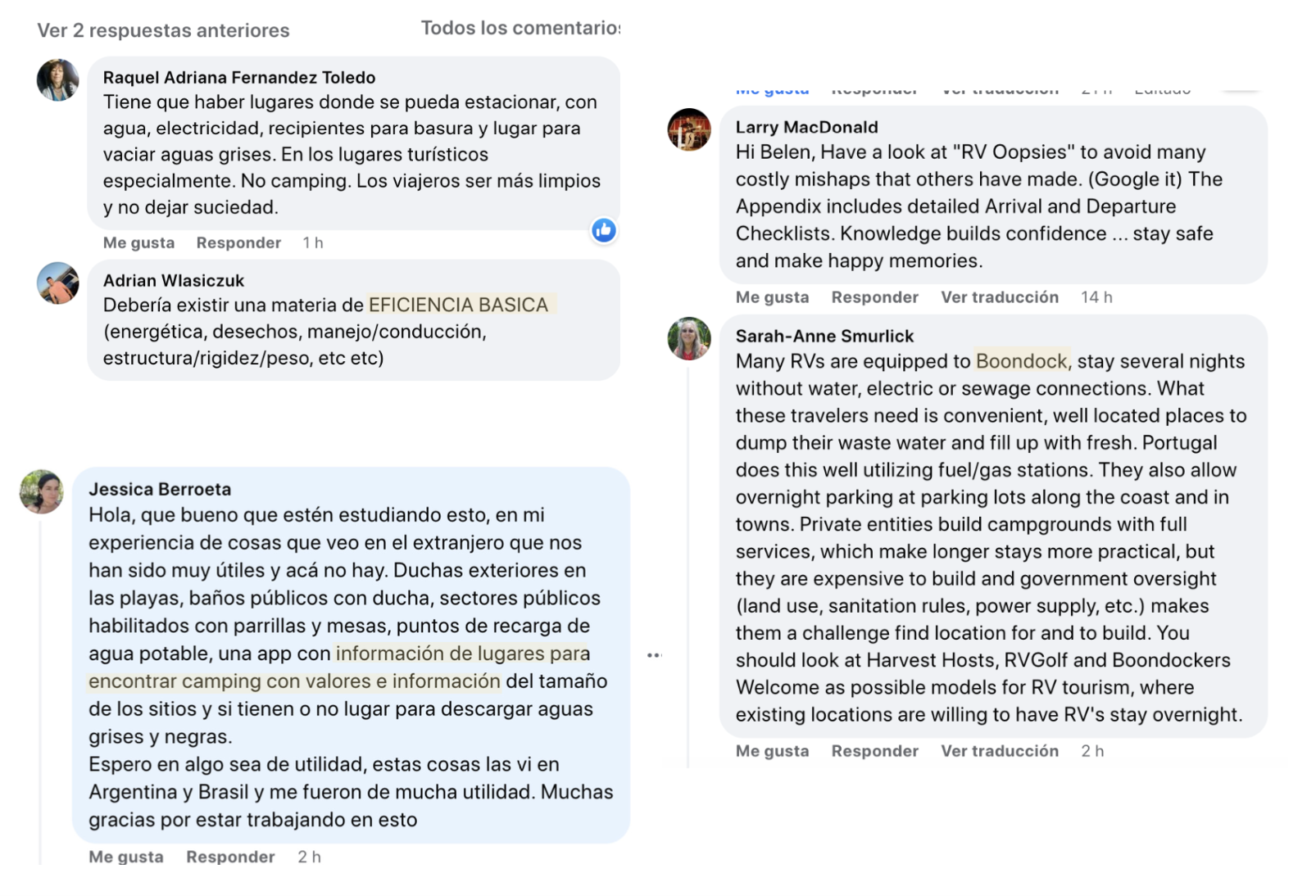
Ruralinn
Designing an on wheels tourism experience in the rural areas of Chile
Scroll down↓
About the project
Title: Ruralinn - Tourism on wheels
Type of work: Service design, UX/UI, and graphic design
Client: Personal project - Design thesis
Date: March - December 2022
Challenge
For my design thesis, I conducted comprehensive research to identify a pertinent problem/opportunity and subsequently develop a strategic solution. Through this process, and driven by my passion for tourism and my insatiable curiosity to discover new places and traditions, it became evident that recreational vehicle (RV) tourism in Chile - experiencing a 30% global growth due to the coronavirus pandemic, with our country being no exception to this trend (Aravena, 2022) - encounters multifaceted challenges, impeding its realization and growth potential. Key issues include inadequate infrastructure, limited cultural awareness of RV tourism, and a dearth of regulatory frameworks governing this mode of travel.
There are thousands of natural features in Chile that invite you to travel and get to know the country from north to south. Its unique geography worldwide, from the driest desert in the world to the most spectacular glaciers along the same road, invites us to get in the car and set off. Yet most of us don't! So I set out to explore what's keeping us from this.
As the challenge consisted of exploring and understanding two aspects - recreational vehicle tourism and rural tourism - it was decided to work separately on both worlds, which would converge after various stages using the Double Diamond design process.
00
Research
At the project's outset, I conducted thorough secondary research and background studies. To understand the concerns of RVers from a more human perspective, I engaged in a study across various social media platforms, including Facebook groups of RVers. This immersion led me to conduct quantitative research to gauge the magnitude of issues in Chile's RV community. Additionally, I conducted several interviews with experts: from RV salesmen to tourism experts from the Chilean government.
Recognizing rural tourism as the solution, I explored potential RV-sustaining sites in Chile's Los Rios region. Through precise observations and interviews with rural residents, I assessed the feasibility and opportunities for RV tourism.
With a comprehensive understanding of both worlds, I mapped the user journey to identify pain points and opportunities aiming to explore how they can mutually complement and enhance each other. This process revealed significant insights, as rural tourism in Chile and RV tourism each face distinct challenges, yet possess characteristics that complement one another for their proper functioning.
01
Define
Rural tourism emerged as a key solution to enhance both rural and recreational vehicle (RV) tourism in Chile, by offering natural and cultural attractions, and underutilized territories that align with the essence of recreational vehicle (RV) tourism. This strategy not only leverages existing resources but also addresses infrastructure needs and land utilization, promising to elevate both tourism sectors and enhance the overall tourism experience in Chile.
02
Ideate
How can service design contribute to Chilean rural communities in managing and promoting RV tourism, ensuring benefits for both tourists and the local community?
Consequently, a service was devised to offer accommodation, guidance, and tourism education aimed at helping people from rural communities (Ruritos) adapt and promote their services for road trippers. This service connects road trippers with Rurito's rural properties suitable for RV tourism through a mobile app that facilitates, encourages, and provides information about accommodations and tourist activities.
Why: The Chilean market lacks dynamism, expansion, and consolidation of services aimed at RV tourism, despite the incredible geographic diversity of Chile and the countless available spaces and rural localities accessible for this purpose.
What for: To increase tourist flow in rural areas, generating sustainable activities over time, thus enhancing domestic tourism, the local economy, and protecting the country's cultural and natural heritage.
*(Note: "Ruritos" is a playful term to refer to the group of users in the rural tourism world)
03
Test
After multiple iterations and initial paper mockups of the app, the final prototype was developed using Figma. To test its usability, I consulted with various UX/UI experts and conducted high-fidelity tests with potential users.
Additionally, to validate the service as a whole, I met with a group of RVers and Ruritos. Utilizing a playful twist on the user journey tool, we envisioned the service comprehensively, allowing users to identify both pain points and opportunities.
04
Results
After conducting the necessary testing, both the service and the app were extensively validated. Users, including RVers and Ruritos, recognize a significant opportunity in merging these two realms. They understand how, with proper implementation and education on RV tourism, rural tourism can evolve and become more professional to cater to RVs, offering them a comprehensive experience.
05
Promotional video to present the project to a committee.








